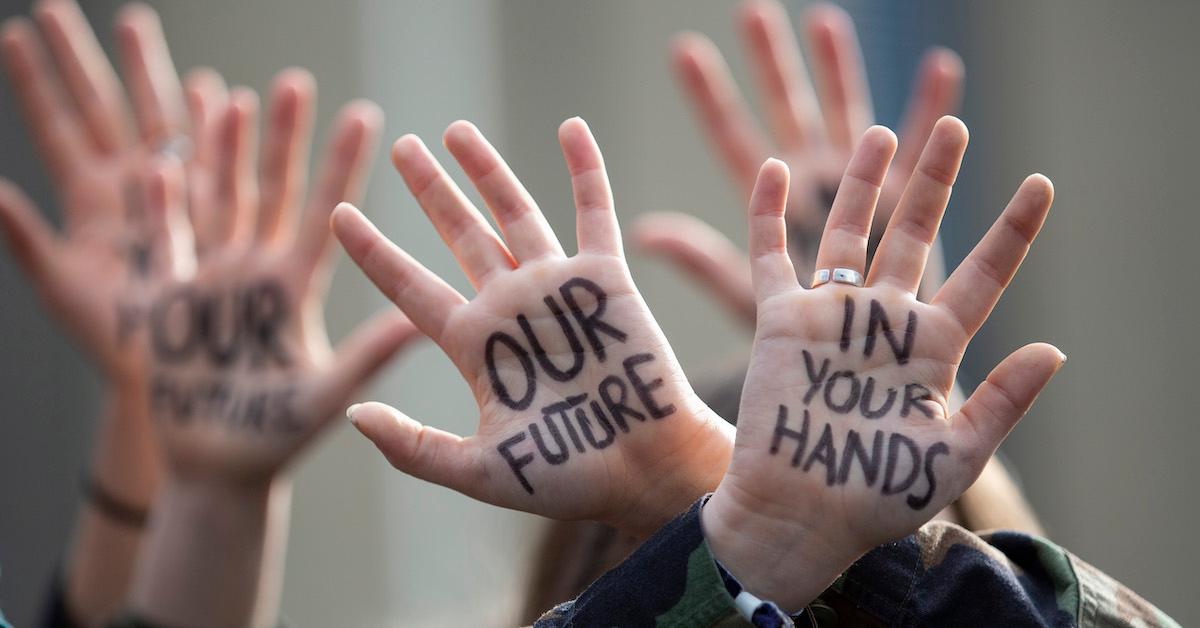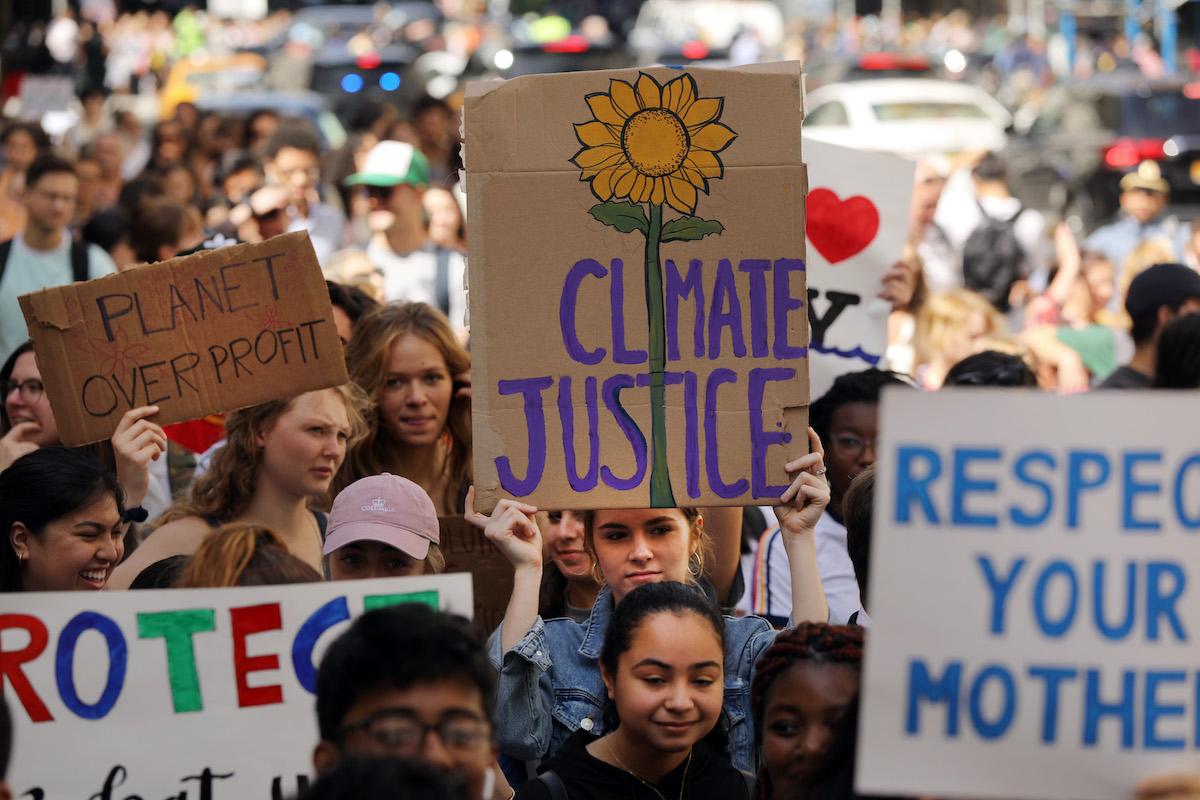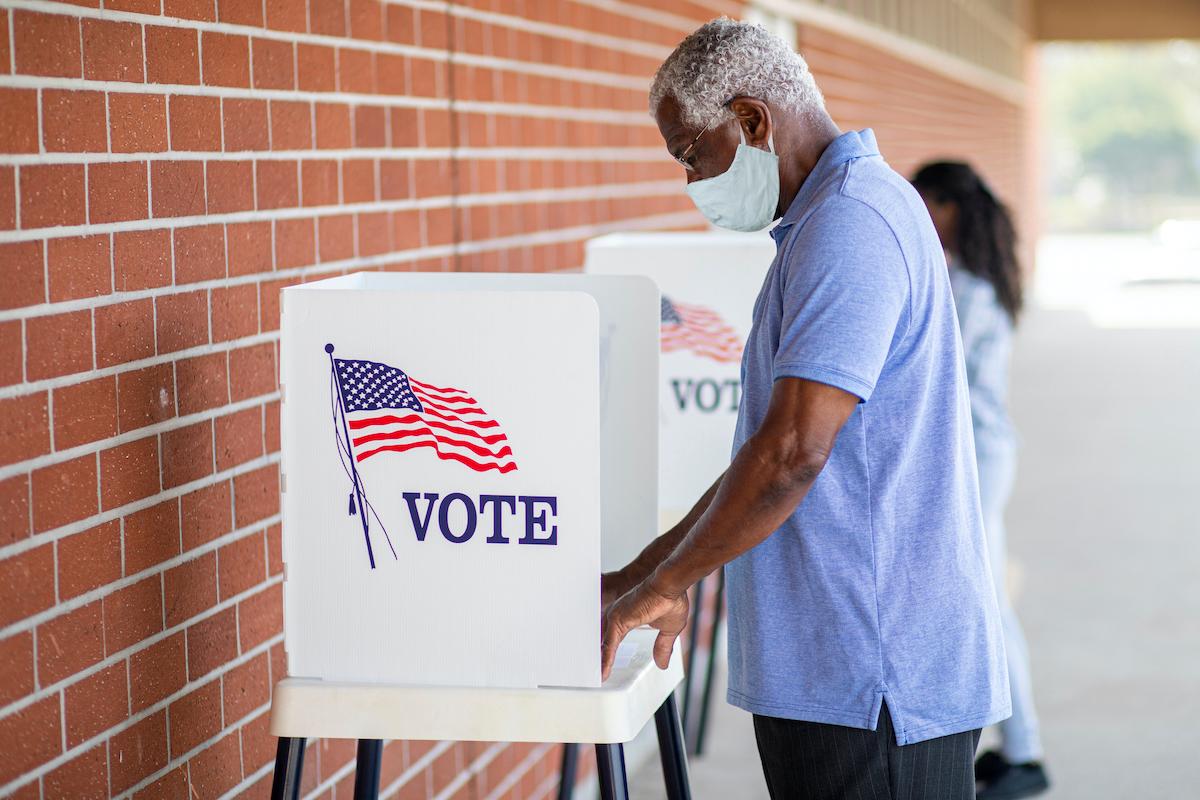How to Fight for Climate Protections in the U.S., No Matter Who the President Is
Read on for a few suggestions of ways you can fight the climate crisis, whether Trump or Biden gets to sit in the oval office for the next four years.
Updated Nov. 5 2020, 5:41 p.m. ET

Over the past four years, the Trump administration has rolled back dozens of environmental policies, called the climate crisis a hoax, and withdrawn from the Paris Agreement. But even if Trump remains in the White House for the next four years, that doesn’t mean that the U.S. cannot make progress in the fight against the climate crisis.
The same goes for the country should Biden become president in January. Just because Biden’s plan to tackle climate issues is stronger than Trump’s does not mean his plan is all we need. If he wins, we cannot sit back, resting assured that the former VP will repair our climate, even though Biden will immediately rejoin the Paris Agreement — there is still so much work that needs to be done to significantly reduce the U.S.’s emissions.
Basically, no matter who gets sworn in as president come January 2020, the U.S. (and the world) desperately needs Americans to step up and take action to protect our environment. If you feel passionately about fighting the climate crisis, read on for a few suggestions of ways you can remain in battle, whether Trump or Biden gets to sit in the oval office for the next four years.
Demand more from your elected officials.

You may have trouble getting through to the president with your requests, but getting in contact with your local Representative, mayor, or council member is likely an easier feat. Read up on your town or city’s environmental policies, and demand changes from elected officials, either by writing them a letter, calling their office, or speaking at council meetings.
No one’s going to speak up for your town but the people who live in it — so why not you?
Get involved in politics yourself.
Depending on your career, free time, and town, you could be the perfect candidate for a local position. If you’re interested, Kathryn Kellogg, who runs the awesome sustainable living blog Going Zero Waste, has written an in-depth guide to getting involved with local government.
Make sustainable lifestyle choices, such as going zero waste or vegan.
Not only does adopting sustainable lifestyle habits help reduce your personal environmental impact, but it also shows those around you (including family, friends, social media followers, and even people who see you using reusable produce bags at the grocery store) that doing so can be easy and joyful. And as Greta Thunberg put it in a recent interview with The New York Times, living an eco-friendly lifestyle “all about sending a signal that we are in a crisis and that in a crisis you change behavior.”
A few things you can do to live more sustainably include reducing your use of plastic and single-use items (aka going zero waste), eating a plant-based or vegan diet, quitting flying in airplanes, shopping secondhand, and so much more — and Green Matters has got you covered with guides for doing all of the above.
Go to protests.
The frequency of in-person climate strikes and protests may have gone down during the coronavirus pandemic, but many people all around the world are still observing Greta Thunberg’s digital climate strikes. Whether you are able to go in-person or online, your voice will make a difference at any protest that you attend. Try encouraging friends to join you as well — in-person protests and rallies can actually be fun, as some feature notable people as speakers and performers.
And on top of just attending protests, you can get involved in planning them, too...
Volunteer with or donate to climate action groups.

The sidelines not exciting enough for you? Try getting involved with climate organizations that plan protests, educational forums, and other events. A few powerful U.S.-based groups that have local chapters include Extinction Rebellion, 350.org, Citizens’ Climate Lobby, and the Sierra Club. There are also many incredible youth-led climate groups, such as Sunrise Movement, Fridays for Future, Zero Hour, and Earth Guardians.
You can also donate to environmental organizations who are working on the frontlines to protect and defend planet Earth, such as Earthjustice, the Environmental Defense Fund, and Friends of the Earth.
Learn as much as you can.
There is endless information out there when it comes to learning about the climate crisis. Take in news from trusted sources, watch documentaries about the environment, read books about topics such as environmental racism, take classes about climate science, and pass what you’ve learned onto friends, children, and anyone who will listen. No one will make changes if they do not understand the severity of this crisis, and learning is the first step.
Vote.

The presidential election is not the only one that matters. Every time you are eligible to vote in an election, no matter how local it is, your vote counts. Do the research, and vote for candidates with strong climate legislation — and then once they assume office, demand they do even better.